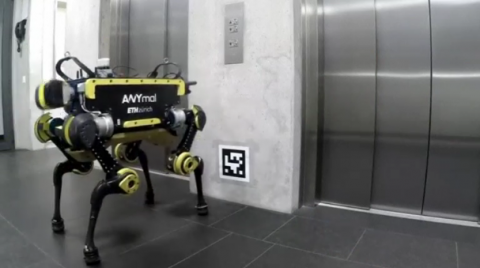
ZURICH, Switzerland (Reuters) —Meet ANYmal.
ANYmal is an autonomous quadrupedal robot designed to navigate industrial sites, with the eventual aim of inspecting oil and gas sites without human help.
The four-legged robot relies on compliant and torque controllable actuators and can run and also climb stairs at up to 45-degree angles.
Laser sensors and cameras help ANYmal perceive its environment, and plan its path autonomously, helping it avoid obstacles that suddenly appear in its path.
Water and dust-proof, its batteries last for up to two hours and can carry additional payloads of up to ten kilograms. It weighs less than 30 kilograms, meaning it can be easily deployed by a sole operator.
The robot carries gas-detection sensors, making it a useful helper on dangerous sites, like oil and gas platforms or mines. It is stable on natural terrain and debris, giving it potential search and rescue abilities.
Containing thermal cameras, it could also be used as a basic surveillance device.
ANYmal is the latest four-legged robot to come out of leading science, technology, engineering and mathematics university ETH Zurich.
It builds on technology developed in previous prototype StarlETH.
Interviewed by Reuters in 2015, assistant professor for robotics Marco Hutter said that the “big advantage of four legged systems is that we can go on one side statically stable, which means that we’re moving one foot at a time.”
“The robot is always stable, so you could just shut down all the motors and it will not fall over.”
According to Hutter, the system itself “balances from a step-to-step basis and moves several legs at a time and you can even do this if I push it or pull it to the side.”
“It accordingly plans where to step, distributes the forces in an appropriate way and balances out whatever disturbances it faces. If you put something underneath the foot, it senses that and accordingly plans where to step.”
ANYmal was developed by ETH spin-off company ANYbotics, which hopes to make it available commercially.








